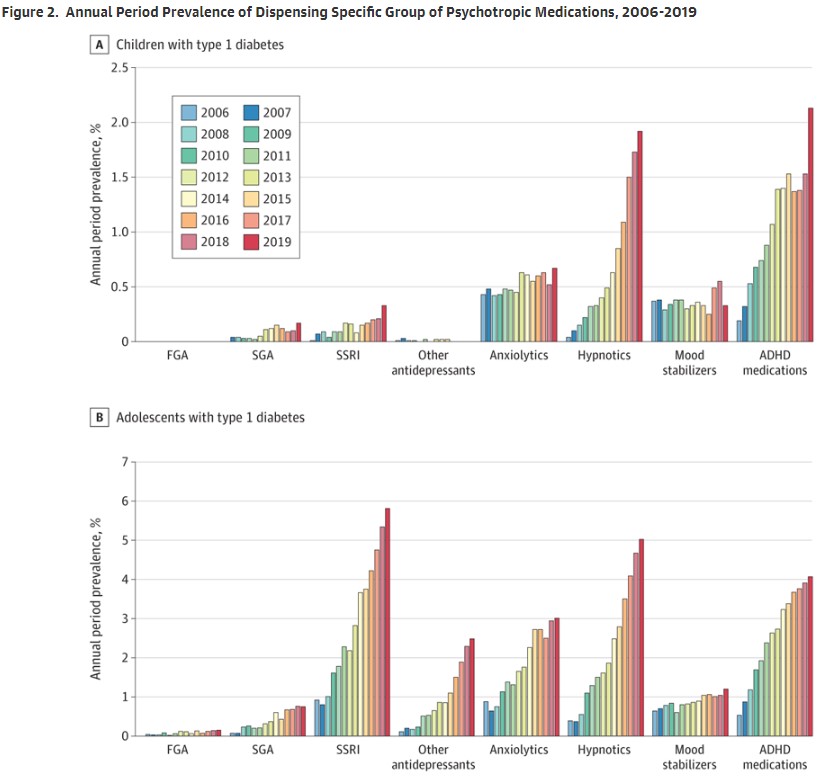Epidemiologists will say it makes sense because young people with type 1 diabetes are at higher "risk" of psychiatric disorders, which may be getting correlation arrows wrong. The reason may be as simple as over-medication of people young and old in all wealthier nations. Psychotropic medications have become widespread among all ages; they are cheap, and the symptoms, like depression, are subjective, so doctors will prescribe them in order to not get in trouble with politicians. With kids, parents may think their child is too active, so they get ADHD medication, or they may think their child is too sad, so they get antidepressants, but it could just be normal variation.
Pediatricians rely on parents for those kinds of personality parameters, they're not handing them out like candy. One thing is clear, more psychiatric conditions being diagnosed does not mean they are happening. If we let people say their kids might have cancer, cancer medication would go up and epidemiologists would find new things to blame for that. It would not be clinically relevant but epidemiologists look at spreadsheets, they ignore the real world outside a few narrow things they 'control for' when trying to get statistical significance.
Scientifically, there may be real reason for concern. Among the 3.7 million Swedish children in the cohort, over 50 percent of the kids with type 1 diabetes on psychotropics were on them long-term, a year or more, and instances in children had gone up 400 percent in children (up to age 11 in their category) and nearly 500 percent in adolescents(ages 12 to 17.) That is startling. Are Swedish kids suddenly that sad since 2006? Do 1000% percent more Swedish kids suddenly have ADHD?

Annual period prevalence (percentage) was calculated as the number of individuals who were dispensed psychotropic medication divided by the total number of individuals who resided in Sweden within 1 calendar year. Graphs show data for children (A) and adolescents (B) with type 1 diabetes. ADHD indicates attention-deficit/hyperactivity disorder; FGA, first-generation antipsychotic; SGA, second-generation antipsychotic; and SSRI, selective serotonin reuptake inhibitor. Link: doi:10.1001/jamanetworkopen.2023.36621
What are the side effects for young people who take brain-altering drugs when their brains are still developing? It may be nothing, but it is odd that the hysterics who think virtual air pollution or if grandma smoked a cigarette before she was 13 shaped their development aren't bringing this up more.
The last thing we need is more oversight of the doctor-patient relationship, and mood stabilizers that mean better medical rigor when it comes to diabetes regimen is certainly a positive, but the authors express some caution about why the numbers are so much higher. It is a reasonable question.




Comments